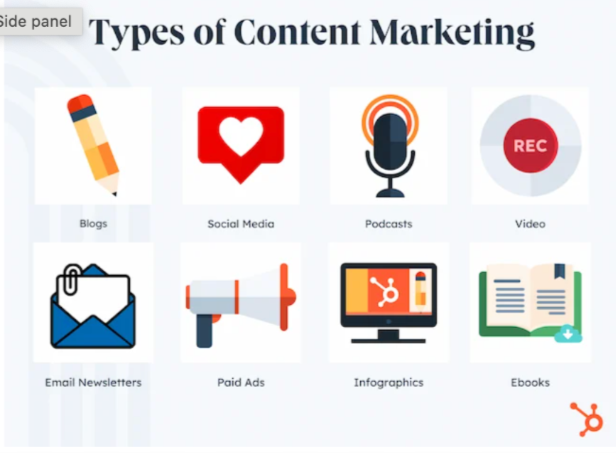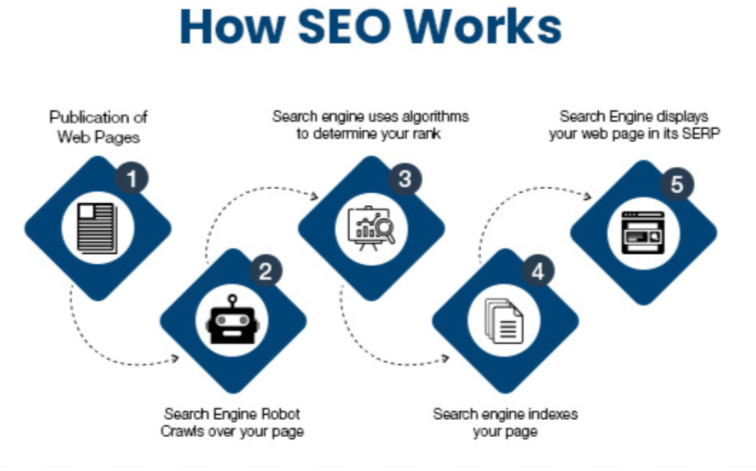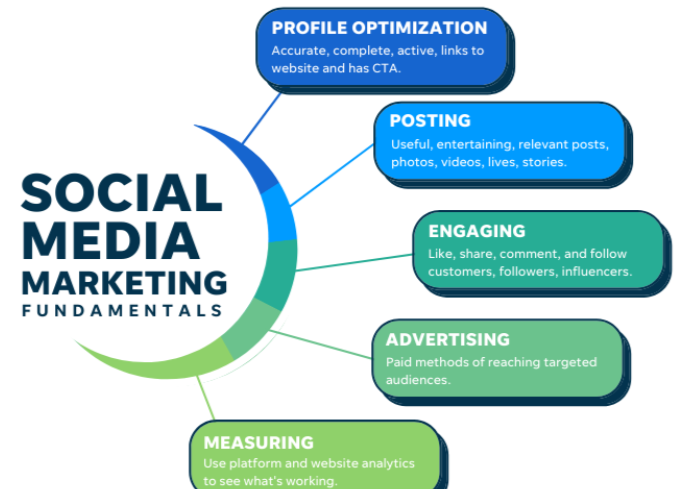In today’s competitive landscape, the right B2B marketing strategies are more than just beneficial—they’re crucial. Strategic marketing empowers you to connect effectively with your business clients, enhancing brand visibility and driving growth.
By implementing targeted strategies, you can significantly boost your ROI and stay ahead of the competition.
If you want to optimize your approach, consider partnering with Flying V Group. Their expertise in crafting comprehensive B2B marketing strategies ensures that every campaign reaches its target audience and delivers substantial returns, setting you on the path to lasting success.
- Understanding Your Target Audience
- Content Marketing
- Account-Based Marketing (ABM)
- Digital Presence and SEO
- Social Media Marketing
- Email Marketing
- Customer Relationship Management (CRM)
- Data Analytics and Reporting
- Partnerships and Networking
- Innovation and Adaptation
- Harnessing B2B Marketing With FVG Strategies for Lasting Success
- FAQs
Understanding Your Target Audience
Understanding your target audience is essential for effectively growing your B2B business. Deep market research is key, allowing you to identify not only who your customers are but also their needs, preferences, and decision-making processes.
Techniques such as audience segmentation further enhance your marketing efforts by dividing your audience into smaller, manageable groups based on specific criteria such as industry, job role, or behavior.
This tailored approach ensures that your marketing messages are highly relevant and significantly more likely to resonate, increasing the effectiveness of your campaigns and boosting customer engagement.
Content Marketing
In B2B marketing, content is more than just king—it’s the cornerstone of engaging your prospects.
Leveraging high-quality, relevant content helps attract potential clients and establishes your brand as a thought leader. To create content that truly resonates, address your target audience’s pain points and challenges.

This might involve producing detailed how-to guides, insightful case studies, or informative whitepapers. The goal is to provide value that draws prospects in and encourages them to return, nurturing a long-term relationship.
Here are some tips to ensure your content marketing efforts hit the mark:
Understand Your Audience: Before creating content, clearly understand your audience’s needs and pain points. This insight will guide you in crafting content that resonates and provides value.
Diversify Your Formats: Not all your prospects consume content similarly. Diversify your content to include a mix of blogs, whitepapers, videos, infographics, and podcasts to cater to different preferences and increase engagement.
Focus on Quality Over Quantity: While continuously churning out content is tempting, quality beats quantity every time. Invest in well-researched, well-written content that speaks directly to the interests and needs of your target audience.
Leverage SEO Best Practices: Optimize your content for search engines to ensure it gets seen. Use keywords naturally, enhance your meta descriptions, and include inbound and outbound links to boost your SEO efforts.
Promote Your Content: Creating great content is only half the battle; you must promote it. Utilize your social media platforms, newsletters, and any other channels where your prospects are active to share your content and increase its reach.
Measure and Adapt: Use analytics to track how your content is performing. Look at engagement metrics like page views, shares, and time spent on the page to understand what’s working and what isn’t. Use these insights to refine your content strategy continually.
Account-Based Marketing (ABM)
Account-Based Marketing (ABM) is a targeted approach in B2B marketing where marketing and sales teams collaborate closely to create personalized buying experiences for a select group of high-value accounts.
This highly effective strategy allows you to craft custom messages and campaigns tailored to each account’s specific needs and characteristics.
Implementing ABM involves identifying key accounts, developing bespoke marketing strategies for each, and integrating sales and marketing efforts to ensure coherence and unity in customer interactions. Because of its personalized approach, ABM leads to higher conversion rates and a better ROI.
Digital Presence and SEO
A strong digital presence and a well-optimized website are vital in today’s digital-first world. Your website should be visually appealing and optimized for search engines to increase visibility and attract quality leads. Implementing best SEO practices such as keyword optimization, quality link building, and ensuring a mobile-friendly design is crucial.
Regularly updating your site with fresh, relevant content also boosts your SEO efforts, helping you climb higher in search engine results and making it easier for potential clients to find you.

Here are some best practices for SEO:
Keyword Research: Understand the keywords your potential clients use to search for your services. Tools like Google Keyword Planner can help you identify relevant keywords to target.
Quality Content: Regularly update your site with high-quality content relevant to your audience. This includes blog posts, white papers, and case studies that address common customer pain points and position your brand as a thought leader.
On-Page Optimization: Ensure each page on your website is optimized for SEO. This includes using meta tags, creating SEO-friendly URLs, and strategically placing keywords in your headers and content.
Mobile Optimization: With more people accessing the internet via mobile devices, having a mobile-friendly website is essential. Google also prioritizes mobile-optimized sites in its rankings.
Backlinks: Cultivate backlinks from reputable sites within your industry. Backlinks improve your site’s authority and SEO ranking.
Social Media Marketing
Choosing the right social media platforms is crucial for effective B2B marketing. Platforms like LinkedIn are invaluable for B2B engagements due to their professional user base and networking capabilities.

To run successful campaigns, you should create content that fosters engagement, such as industry insights, company news, and useful articles.
Utilizing tools like scheduled postings and analytics can help you maintain a consistent presence and measure the impact of your strategies. Respond to comments and participate in discussions to build stronger relationships with your audience.
When it comes to strategizing your social media campaigns, consider the following:
Consistency is Key: Maintain a regular posting schedule to keep your brand top-of-mind.
Engage Actively: Don’t just post your content; engage with followers through comments, shares, and discussions to build relationships.
Use Analytics: Monitor your performance using social media analytics tools to understand what works and adjust your strategy accordingly.
Content Diversity: Mix up your content types to include videos, images, polls, and infographics to keep your audience engaged and interested.
Email Marketing
Email marketing remains a powerful tool in B2B strategies due to its direct and personalized nature. To craft emails that convert, focus on personalization beyond just using the recipient’s name. Segment your email list based on user behavior or stage in the sales funnel to send targeted content that speaks directly to their needs.
Utilizing automation can help deliver these personalized emails at scale, ensuring timely and relevant communication with your prospects. Well-crafted emails drive engagement, nurture leads, and ultimately contribute to higher conversion rates.
Customer Relationship Management (CRM)
Using CRM tools effectively can transform your B2B marketing and sales operations by streamlining interactions and managing customer data efficiently. CRM integration helps align your marketing strategies with sales efforts, ensuring that customer interactions are seamless and more productive.
This tool allows for better tracking of customer behaviors and preferences, enabling personalized marketing approaches and timely follow-ups. Thus, it enhances the overall customer experience and boosts retention rates.
Data Analytics and Reporting
Data-driven decision-making is crucial in refining and optimizing B2B marketing strategies. Utilizing analytics tools allows you to measure the effectiveness of your campaigns and understand ROI comprehensively.
Techniques such as A/B testing, conversion rate analysis, and customer segmentation can reveal powerful insights into what strategies work best, helping you to make informed decisions that drive growth and improve marketing efforts continually.
Partnerships and Networking
Leveraging partnerships and networking in B2B marketing can significantly expand your reach and enhance credibility. Co-marketing with aligned businesses or engaging in industry consortiums can open up new channels for growth.
Effective networking strategies, such as participating in industry panels, attending trade shows, and maintaining active roles in professional organizations, help build valuable relationships that can lead to opportunities for collaboration and innovation.
Innovation and Adaptation
Staying ahead of the curve is essential in today’s fast-paced market environment. Encouraging a culture of innovation within your marketing team can lead to discovering new strategies and technologies that propel your business forward.
Be open to experimenting with emerging marketing technologies and trends, and adapt your strategies to meet changing market conditions and customer expectations. This proactive approach keeps your business relevant and ahead of the competition.
Harnessing B2B Marketing With FVG Strategies for Lasting Success
Integrating crucial B2B marketing strategies effectively can significantly impact your business growth.
From understanding your audience to leveraging the power of digital presence and everything in between, each strategy offers a unique benefit that can drive your business forward.
Partnering with a seasoned marketing firm like Flying V Group can further enhance your efforts. Their expertise in crafting comprehensive marketing strategies ensures that you implement these B2B marketing strategies effectively and achieve sustainable business development with true ROI. Embrace these approaches and watch your business thrive in a competitive marketplace.
FAQs
1. What are the key components of a successful B2B marketing strategy?
A successful B2B marketing strategy includes understanding your audience, leveraging content marketing, utilizing SEO, engaging in social media, and implementing account-based marketing. Each element is tailored to meet specific business needs and customer interactions.
2. How important is SEO for B2B companies?
SEO is crucial for B2B companies, enhancing online visibility and attracting quality leads. Optimizing your website and content for search engines helps potential clients find your business when actively seeking solutions.
3. What is Account-Based Marketing (ABM)?
Account-based marketing (ABM) is a focused approach in B2B marketing in which marketing and sales teams collaborate to create personalized buying experiences for key accounts. It effectively aligns resources and strategies toward engaging and converting high-value customers.
4. Can social media be effective for B2B marketing?
Yes, social media is highly effective for B2B marketing. Platforms like LinkedIn are especially beneficial for building networks, establishing thought leadership, and directly engaging with other businesses and professionals in your industry.
5. Why is data analytics important in B2B marketing?
Data analytics is vital in B2B marketing for measuring the effectiveness of marketing strategies and making informed decisions. It helps marketers understand customer behavior, track campaign performance, and optimize strategies for better ROI.






0 Comments